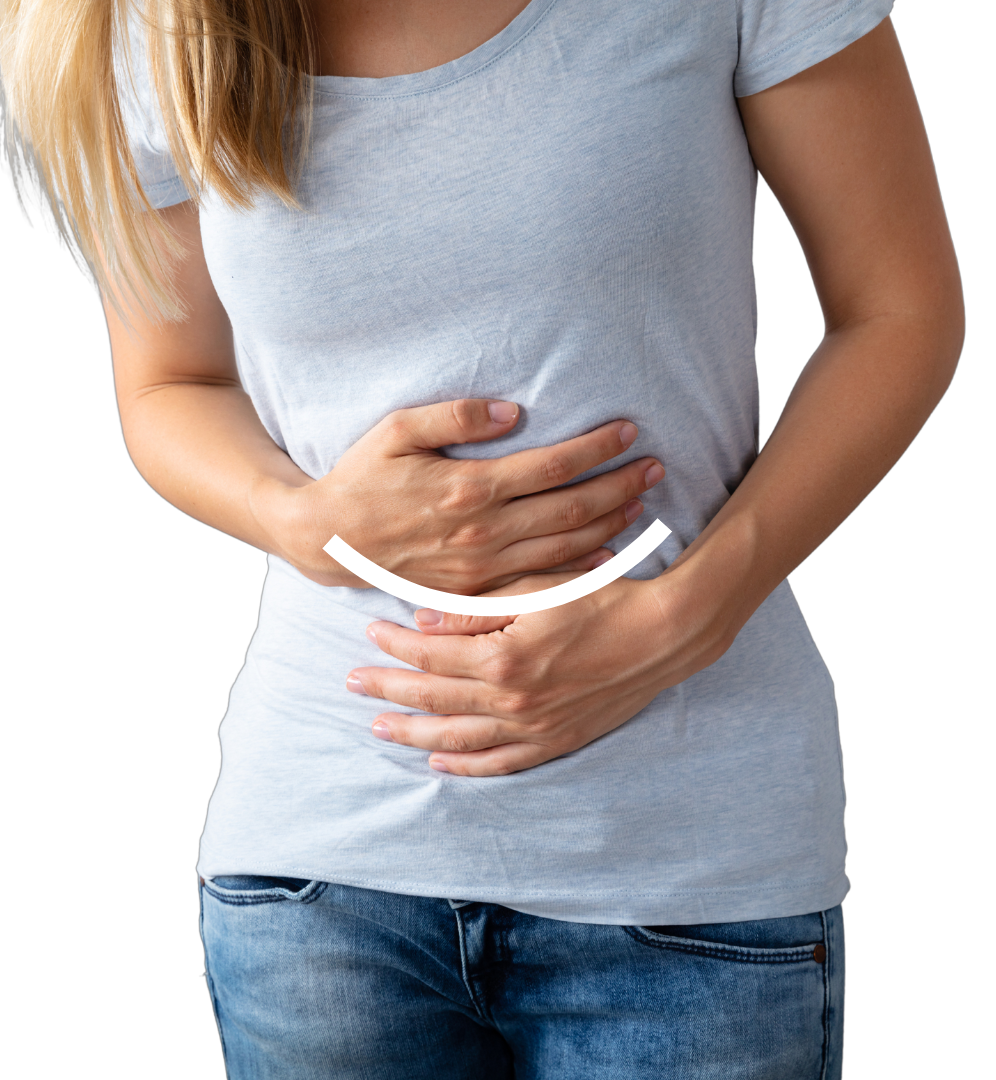Irritable Bowel Syndrome
About Irritable Bowel Syndrome
Irritable Bowel Syndrome or IBS is a common chronic condition of the large intestine which affects about 9 to 23% of people worldwide. IBS is considered a functional gastrointestinal disorder that is related to problems in how the gut and brain interact. Some people with IBS can control their symptoms by controlling their diet, lifestyle, and stress. More severe symptoms can be treated with medication and specialized injections.
Irritable bowel syndrome is classified by how your bowel movements are affected. The types of IBS are:
- IBS with diarrhea (IBS-D): Your poop is mainly watery and loose.
- IBS with constipation (IBS-C): Your poop is usually lumpy and hard.
- IBS with mixed bowel habits (IBS-M): You experience both hard and lumpy and loose and watery bowel movements at the same time.

What Causes Irritable Bowel Syndrome?
The exact cause of IBS is unknown. However, these factors may play a role:
- Intestinal muscle contractions. Having a contraction that is stronger or lasts longer than normal may lead to bloating, diarrhea, and gas. On the other hand, when intestinal contractions are weak, food may have difficulty passing through and may result in hard, dry stools.
- Nervous system. You may feel greater than normal discomfort if your abdomen stretches due to gas or stool due to abnormal nerve function in your digestive system. The body can overreact to changes in digestion caused by disjointed brain-intestine signals, causing pain, diarrhea, or constipation.
- Severe infection. It is possible to develop IBS after a bout of severe diarrhea (gastroenteritis) caused by bacteria or viruses. The presence of excess bacteria in the intestines may also cause IBS (bacterial overgrowth).
- Early life stress. IBS symptoms are more common among people exposed to stressful events during their childhood.
You are also more likely to develop IBS if you are:
- Female
- Under 50 years of age
- Are suffering from anxiety, depression, or another mental illness
- Have a family history of IBS
Symptoms Of Irritable Bowel Syndrome
Pain
Altered Bowel Habits
Other Symptoms
A Message About Irritable Bowel Syndrome
Any persistent abdominal pain will need to be excluded for stomach ulcers, liver gallstones, intestinal diverticulitis and other related pelvic disorder and cancers. After the exclusion of sinister pathologies, we may consider IBS as a functional pain disorder. Though not harmful, IBS can be severely distressing and disabling, affecting the quality of life and activities of daily living.
IBS abdominal pain does not respond well to standard painkillers. Its neuropathic pain needs nerve stabilizer and muscle relaxants. Selected cases of IBS may need nerve blocks to desensitize the hypersensitive nervous system. Rectus sheath nerve blocks and intercostal nerve blocks are effective in stopping any form of abdominal pain, even gallbladder or pancreatic stones pain.
Diagnosing Irritable Bowel Syndrome
Here at Singapore Paincare, our team of experienced primary care doctors and pain care specialists together with a gastroenterologist will evaluate your condition. This includes a physical exam, questions about your symptoms and an evaluation of your medical history.
Other tests like blood tests, stool samples or X-rays may also be needed to confirm a diagnosis.
What Treatments Are Available for Irritable Bowel Syndrome?
In many instances, non-surgical treatment methods can provide excellent outcomes. At Singapore Paincare, we strive to treat your pain with the least invasive option possible after accurately identifying the cause. Our pain resolution approach focuses on removing pain generators via specialised injection and minimally invasive procedures. Combined with pharmacological treatments, cognitive and physical rehabilitative therapies. We help patients to improve functions and prevent pain from recurring.
Non-Surgical Treatments for Irritable Bowel Syndrome
Psychological Therapy and dietary management
Our specialists offer cognitive behavioral therapy, which treats the condition through relaxation techniques. It is also suggested to make changes in your diet like increasing fiber and fruit intake or limiting alcohol.
Pharmacotherapy
Our physicians and specialists may prescribe antidepressants and anti-convulsants to stabilise the irritable nervous system of IBS. These are not used to treat depression even if patient may be diagnosed with them. Newer drugs such as guanylate cyclase receptors are also used to address the condition.
Coreflex and Nerve block Injection
In refractory cases, we may use radiofrequency ablation and/or chemical such as alcohol to “burn” off the sensitised nerves in the Neurolysis of Coeliac Plexus and Hypogastric Plexus.
Surgical Treatment for Irritable Bowel Syndrome
There is no surgical treatment for irritable bowel syndrome.
How Can I Prevent Irritable Bowel Syndrome?
There is no known way to prevent irritable bowel syndrome since there is little information on its cause. However, you can manage your symptoms by:
- Making changes in your diet like increasing fiber intake, drinking plenty of water, avoiding caffeine or trying a low FODMAP diet
- Exercising regularly
- Getting enough rest and managing stress
Get Your Pain Resolved
Send your enquiries or consult our pain experts today.


